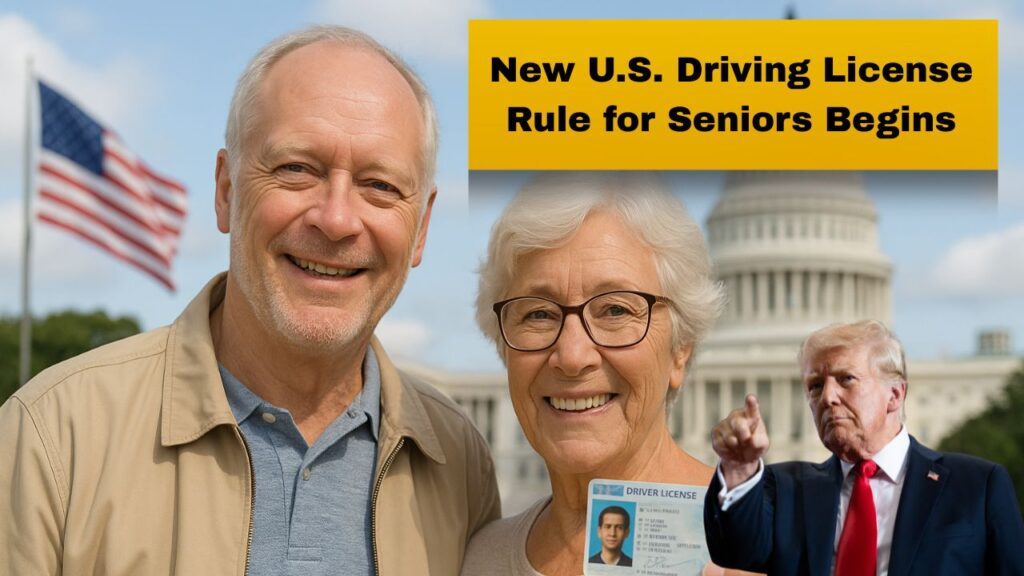The U.S. government has announced a major update for senior drivers starting in October 2025. This new regulation will directly impact those aged 70 and above who hold a valid driving license. The rule aims to enhance road safety standards while ensuring that elderly drivers can continue driving safely and confidently. Under this update, seniors may need to undergo additional medical assessments and renew their licenses more frequently. The Department of Motor Vehicles (DMV) has also introduced digital and in-person renewal options to make the process easier for everyone involved.

Key Details of the New Driving License Rule
Beginning October 2025, every U.S. driver aged 70 or older will need to meet specific license renewal requirements. The DMV will require proof of good health and vision from all senior applicants. This change is part of a national effort to ensure safer roads for all. Seniors will now need to complete a medical fitness form from an approved healthcare provider before their renewal is approved. While these changes might seem stricter, they’re designed to balance safety with the independence that many seniors value in their daily lives.
Renewal Frequency and Testing Requirements
Under the revised law, the license renewal period for drivers aged 70+ will be shortened from ten years to five. This will allow authorities to conduct more frequent health and vision evaluations. Seniors may also need to pass a brief reaction and awareness test in some states, depending on their medical history. The DMV will send timely notifications to ensure drivers have ample time to complete these steps. These updates reflect the government’s focus on ensuring that every senior driver maintains the necessary cognitive and physical abilities to stay safe on the road.
How This Change Benefits Senior Drivers
Although some seniors may see these changes as challenging, they come with clear benefits. The updated system will help detect early signs of health-related driving issues, prevent accidents, and promote confidence among senior citizens. Additionally, the government plans to introduce special training programs for elderly drivers to adapt to modern traffic systems. The new system also includes online assistance for DMV renewal appointments, making the entire process easier and faster. Overall, the reform focuses on both safety and convenience for older drivers across the United States.
State-by-State Implementation Schedule
The rollout of the new driving license rule will vary across states, with implementation schedules adjusted to local regulations. Some states will begin the transition earlier in mid-2025, while others will follow by late 2025. The DMV has provided guidelines for each state to ensure smooth execution. Seniors are advised to check their state’s official DMV website for updated renewal deadlines and medical documentation requirements. Below is a simplified table outlining the expected implementation timeline and renewal details for senior drivers in key states.
| State | New Rule Effective Date | Renewal Frequency | Medical Test Required |
|---|---|---|---|
| California | October 2025 | Every 5 Years | Yes |
| Texas | November 2025 | Every 5 Years | Yes |
| Florida | September 2025 | Every 5 Years | Optional |
| New York | October 2025 | Every 5 Years | Yes |
| Illinois | December 2025 | Every 5 Years | Yes |
FAQ 1: When does the new rule start?
The new senior driving license rule begins nationwide in October 2025.
FAQ 2: Who needs to follow the new rule?
All U.S. drivers aged 70 and above must comply with the updated requirements.
FAQ 3: Are medical tests mandatory for renewal?
Yes, most states will require a basic health and vision test for senior drivers.
FAQ 4: Can seniors renew their license online?
Yes, the DMV allows both online and in-person renewals for eligible applicants.




